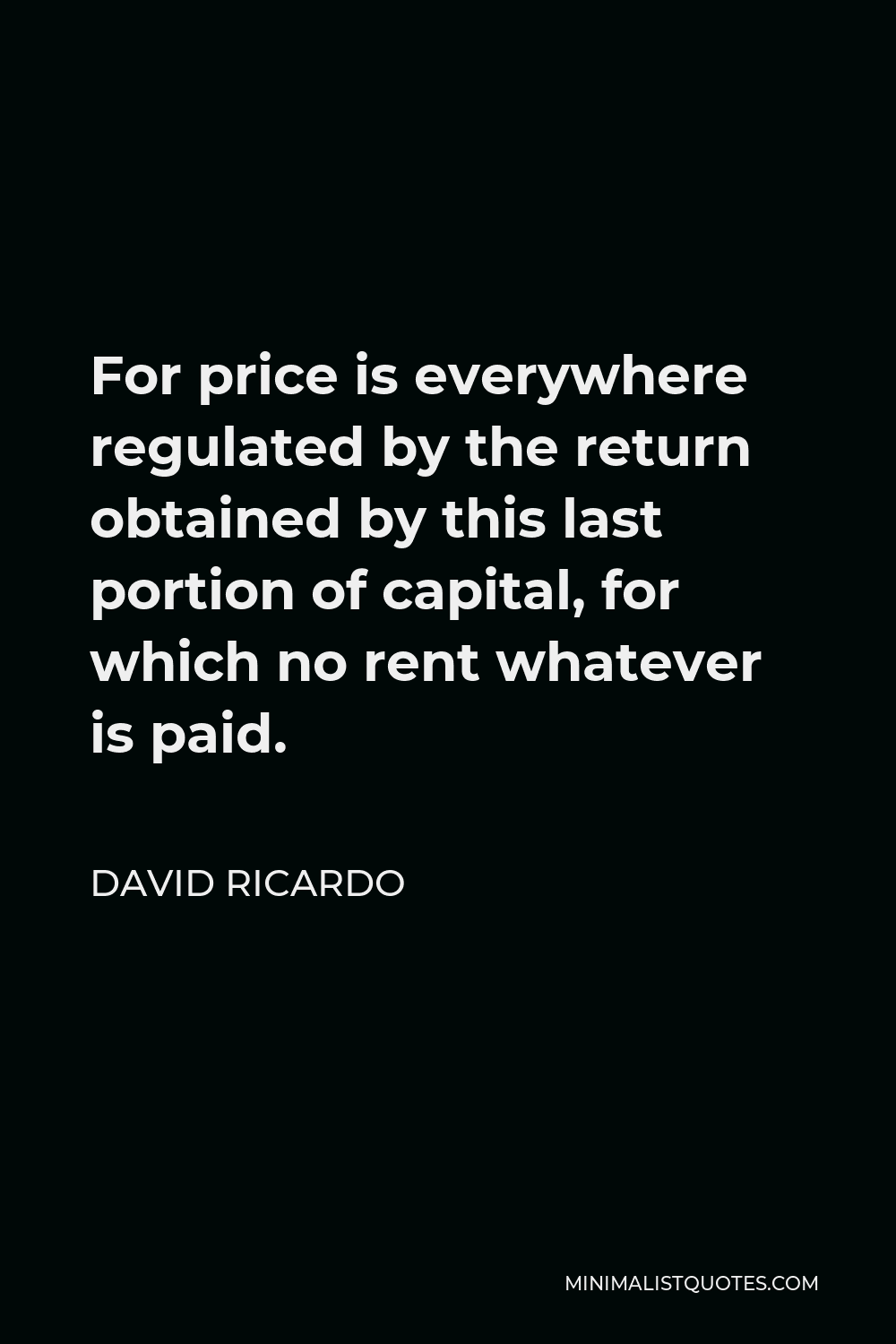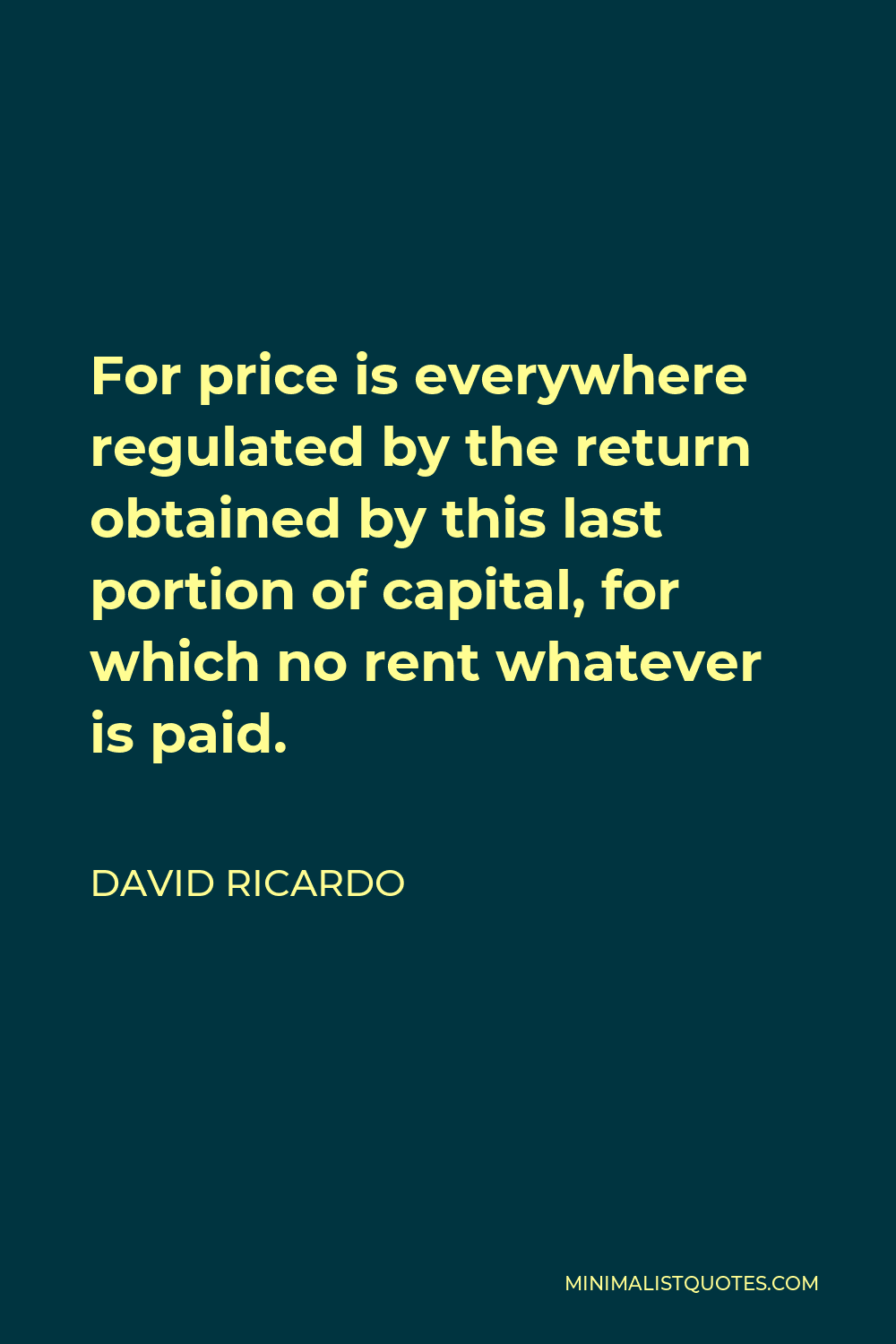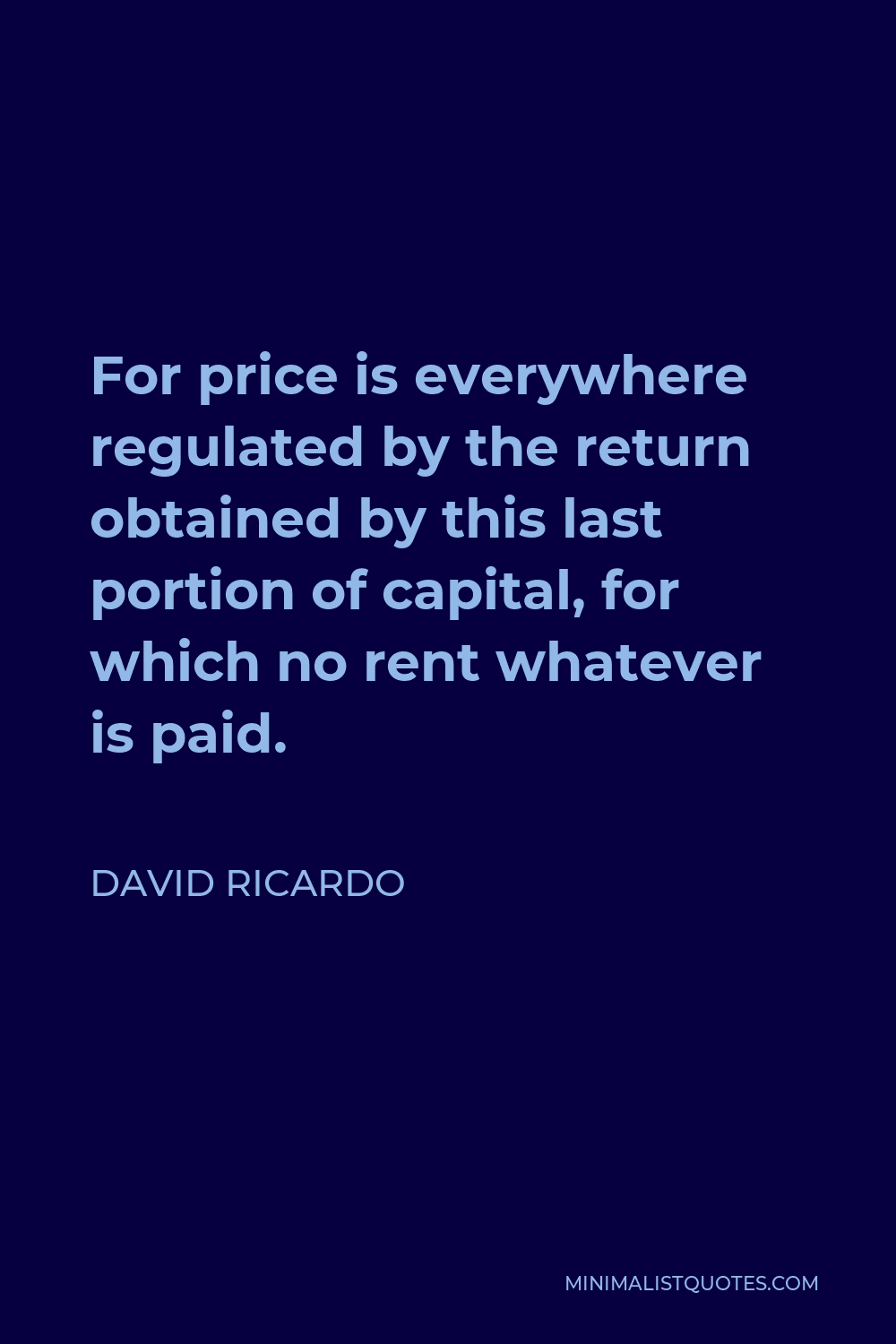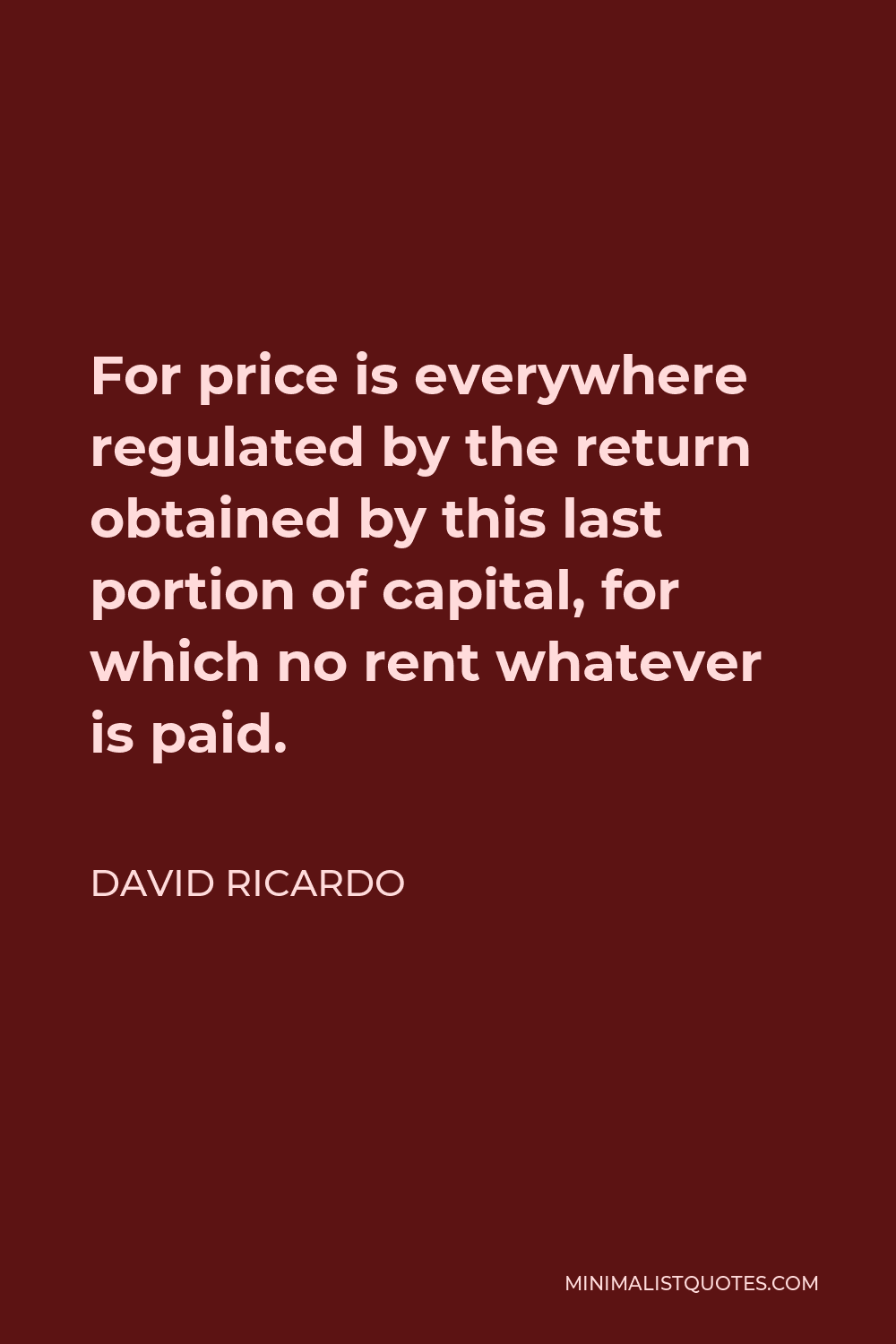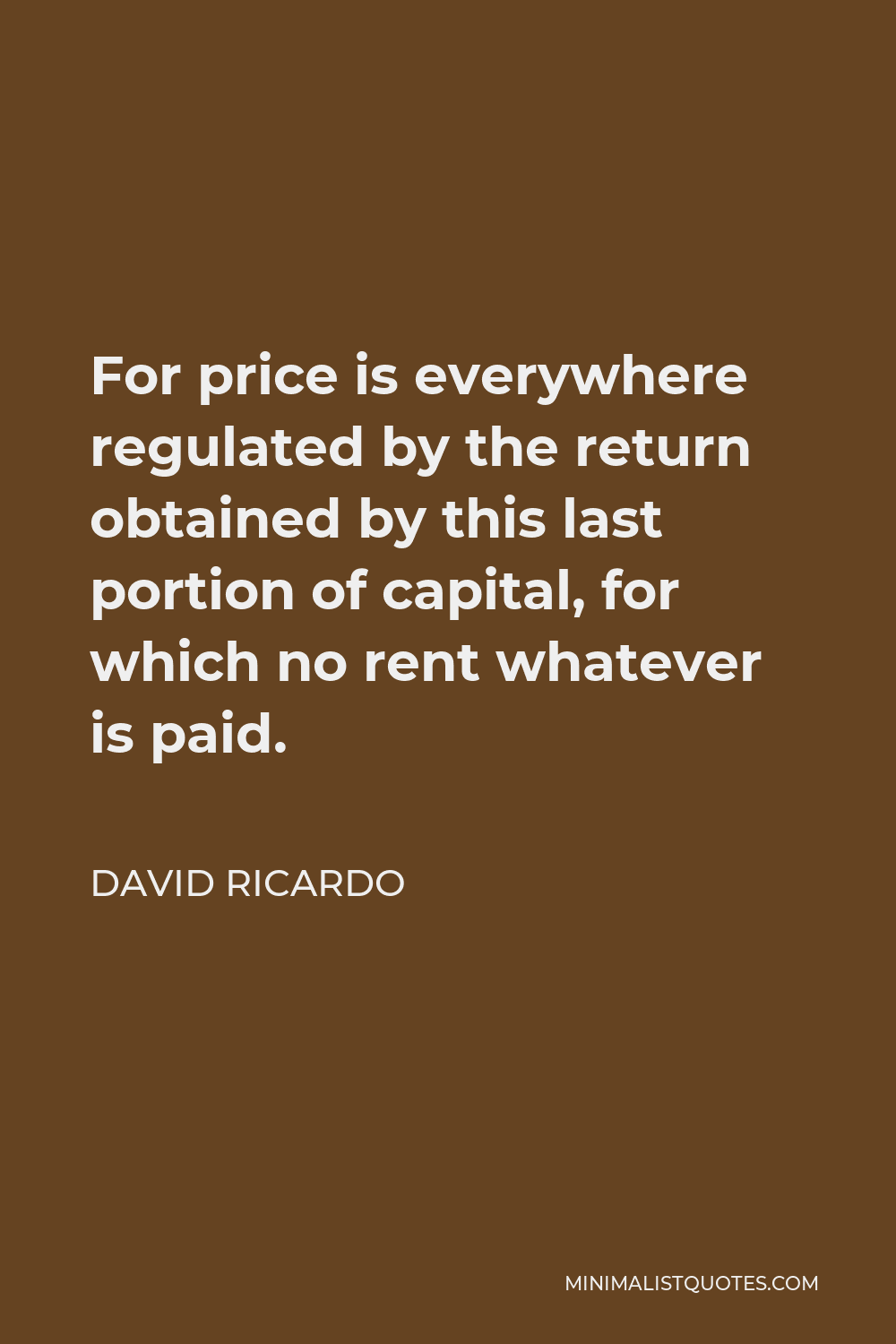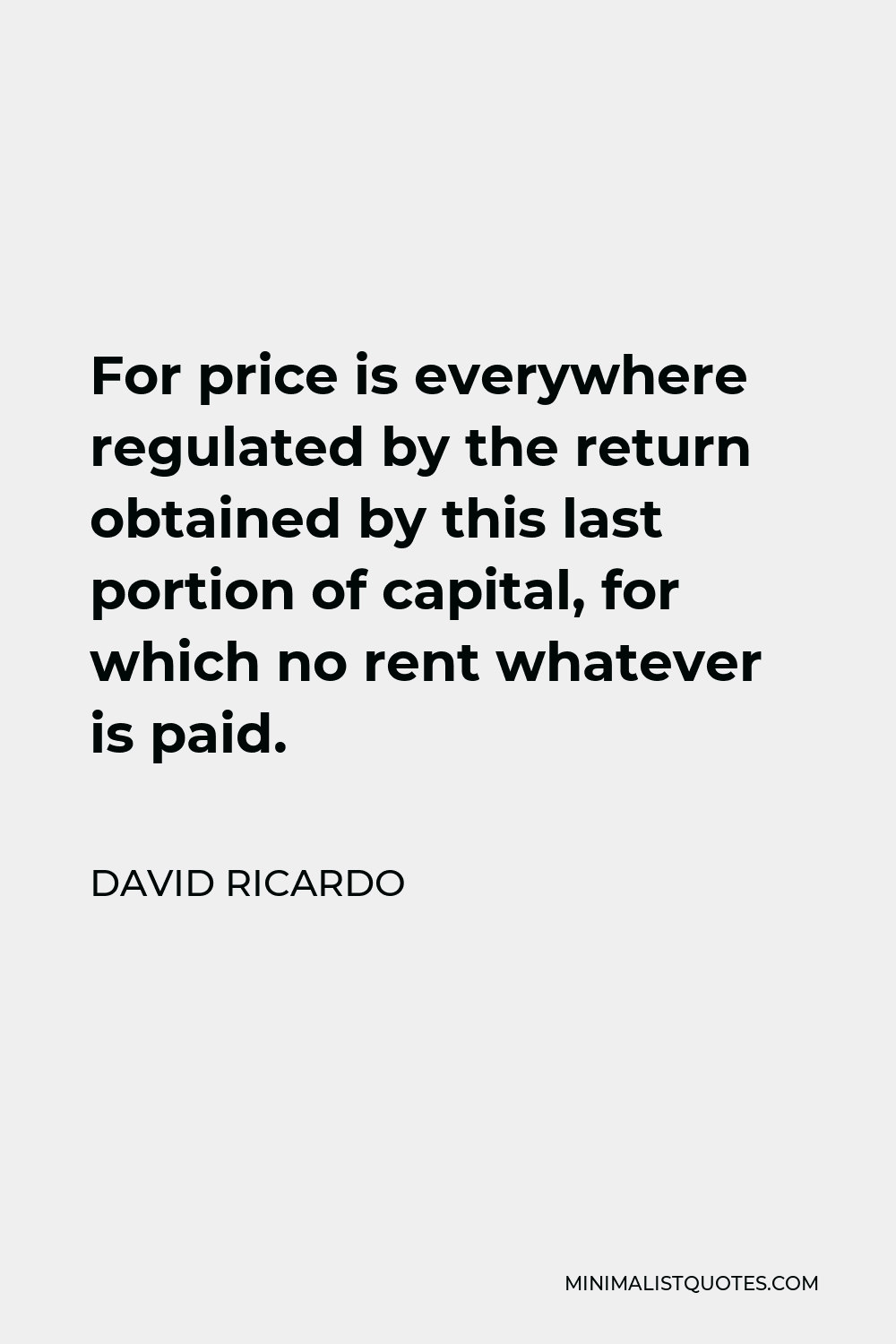A rise in wages, from an alteration in the value of money, produces a general effect on price, and for that reason it produces no real effect whatever on profits.
DAVID RICARDOFor price is everywhere regulated by the return obtained by this last portion of capital, for which no rent whatever is paid.
More David Ricardo Quotes
-





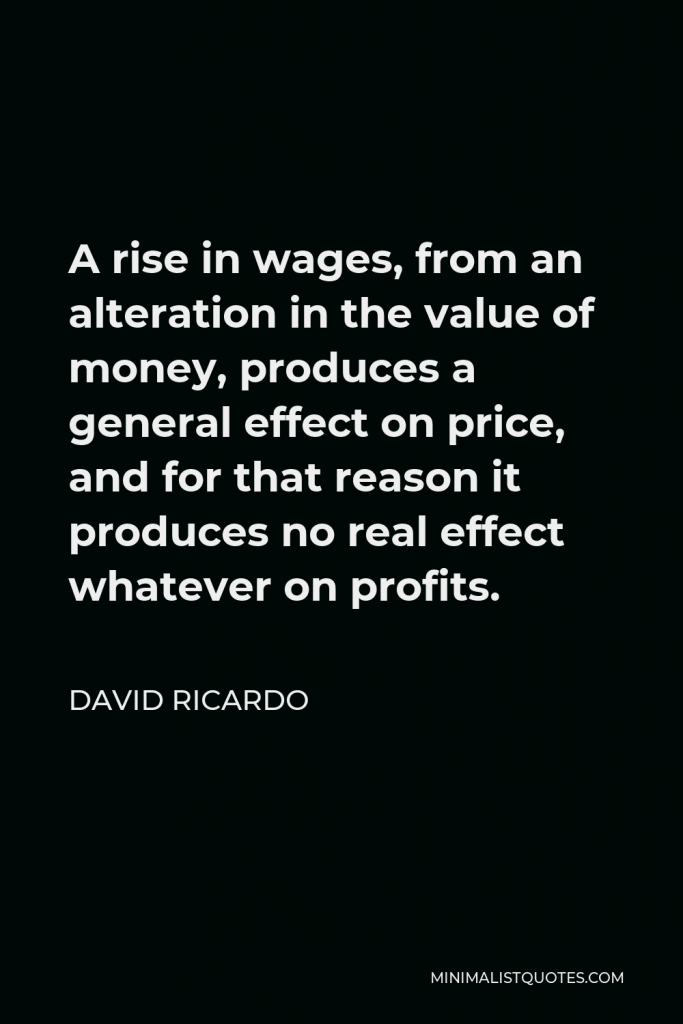

-





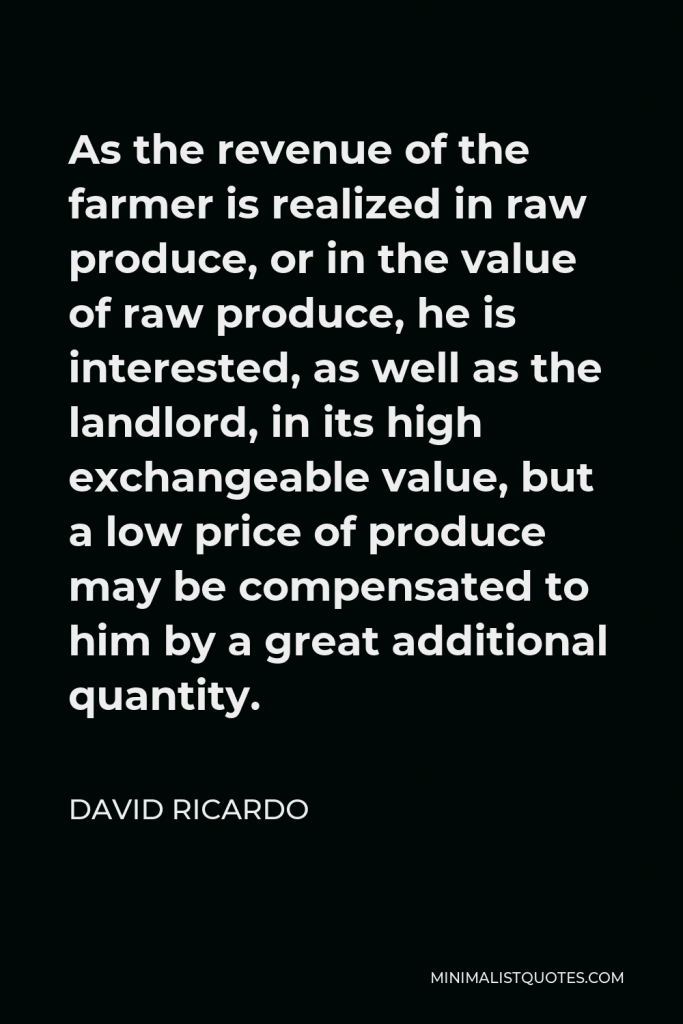

As the revenue of the farmer is realized in raw produce, or in the value of raw produce, he is interested, as well as the landlord, in its high exchangeable value, but a low price of produce may be compensated to him by a great additional quantity.
DAVID RICARDO -





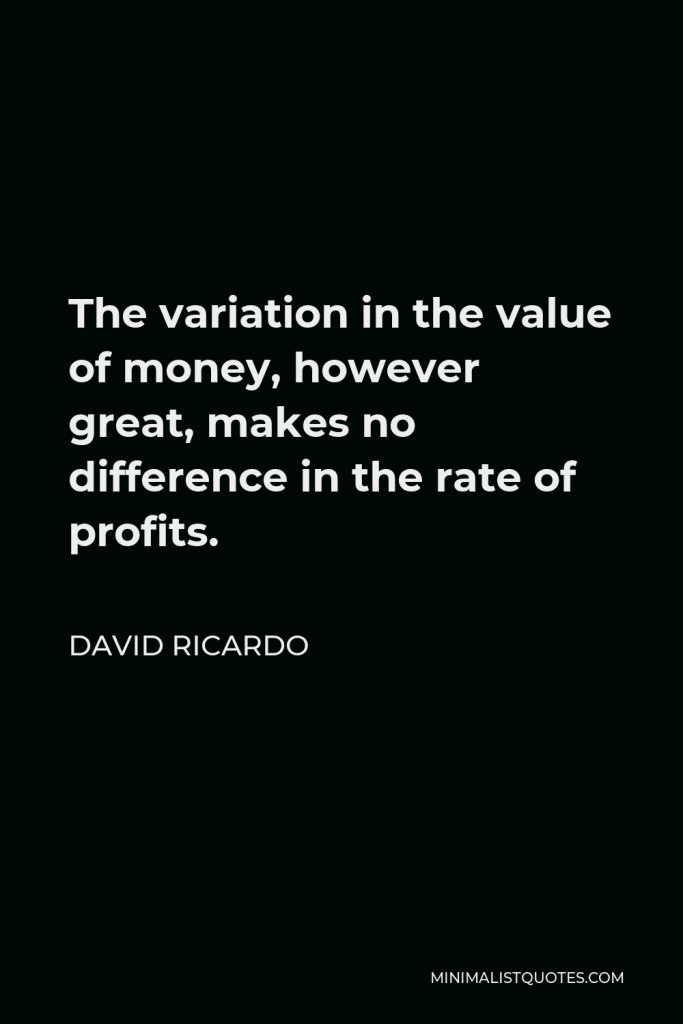

The variation in the value of money, however great, makes no difference in the rate of profits.
DAVID RICARDO -





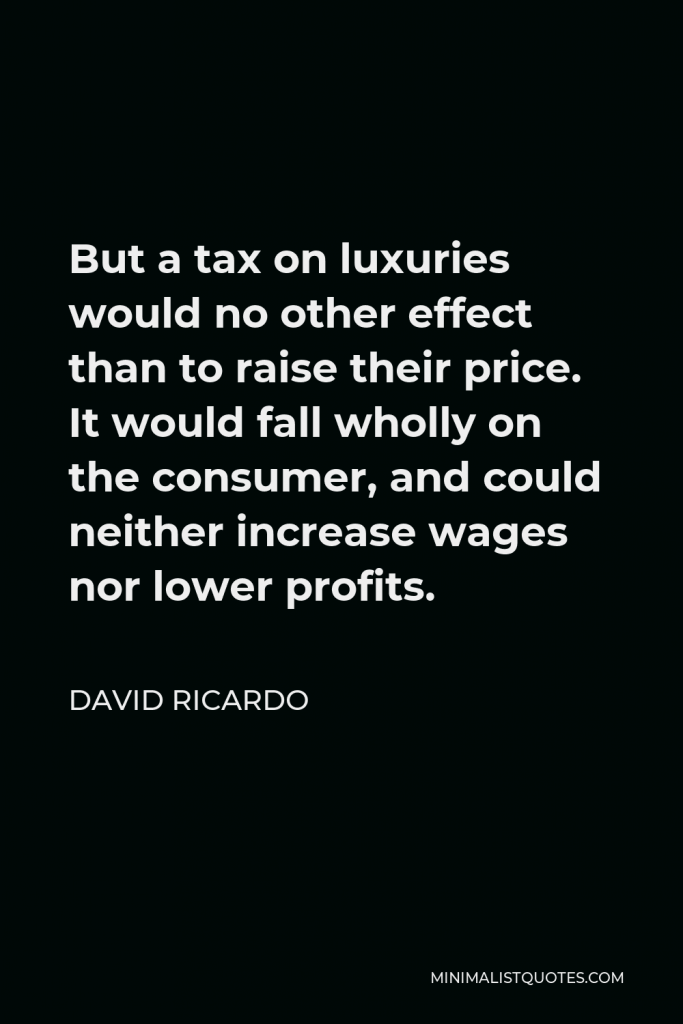

But a tax on luxuries would no other effect than to raise their price. It would fall wholly on the consumer, and could neither increase wages nor lower profits.
DAVID RICARDO -





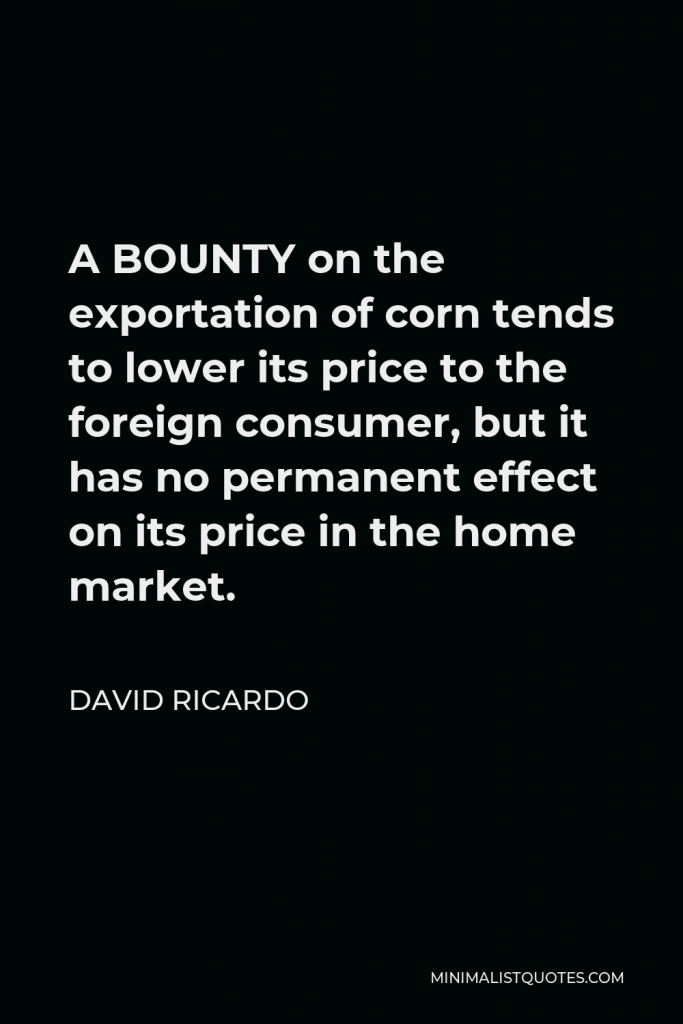

A BOUNTY on the exportation of corn tends to lower its price to the foreign consumer, but it has no permanent effect on its price in the home market.
DAVID RICARDO -





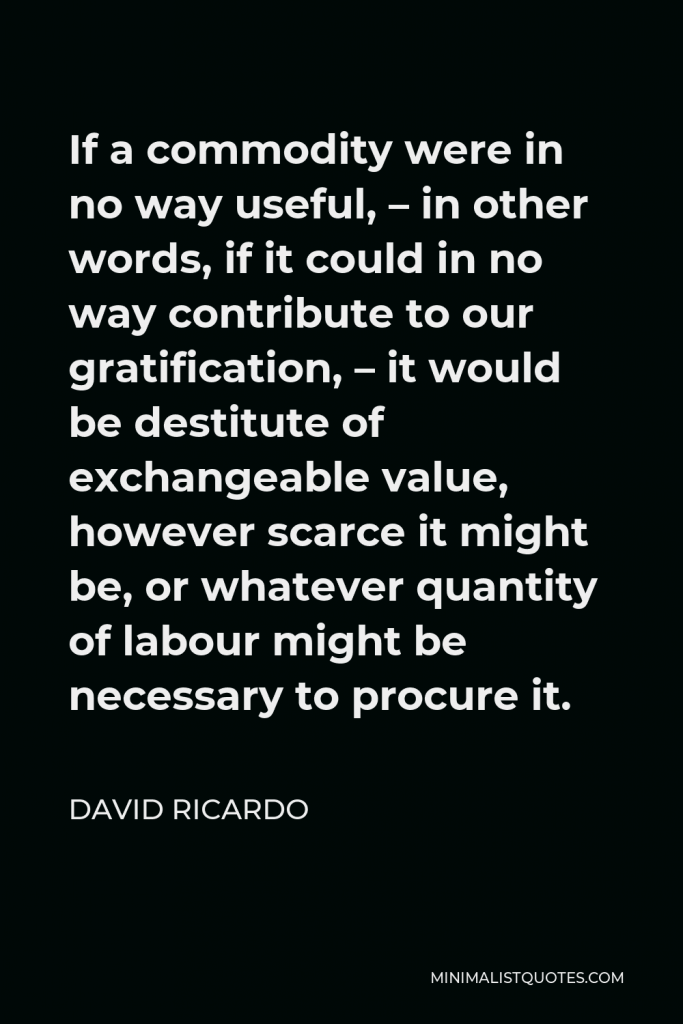

If a commodity were in no way useful, – in other words, if it could in no way contribute to our gratification, – it would be destitute of exchangeable value, however scarce it might be, or whatever quantity of labour might be necessary to procure it.
DAVID RICARDO -





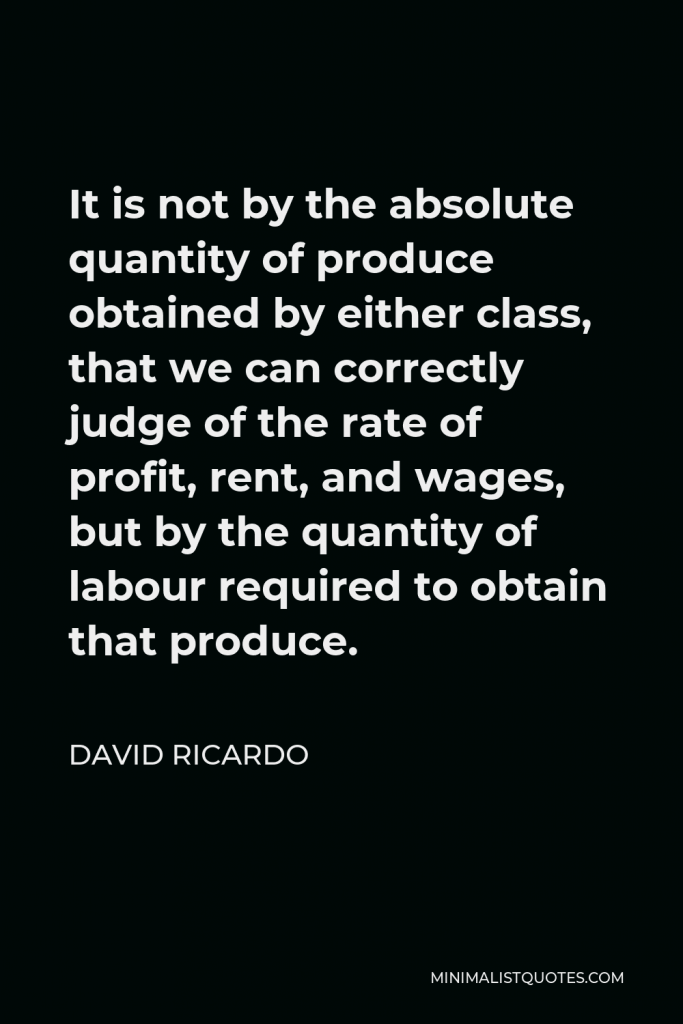

It is not by the absolute quantity of produce obtained by either class, that we can correctly judge of the rate of profit, rent, and wages, but by the quantity of labour required to obtain that produce.
DAVID RICARDO -





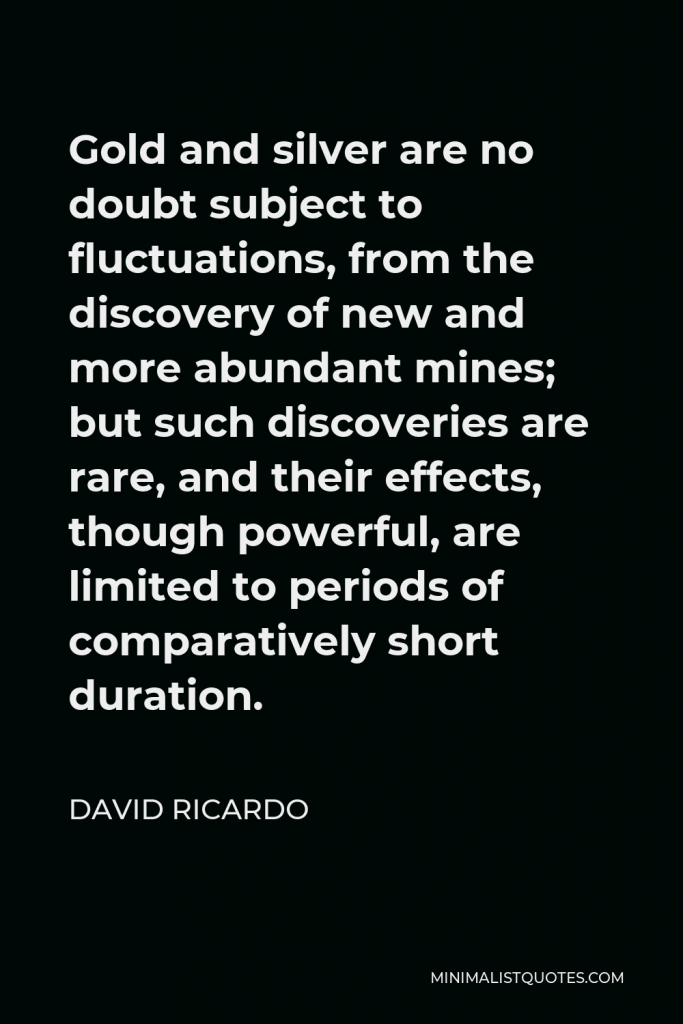

Gold and silver are no doubt subject to fluctuations, from the discovery of new and more abundant mines; but such discoveries are rare, and their effects, though powerful, are limited to periods of comparatively short duration.
DAVID RICARDO -





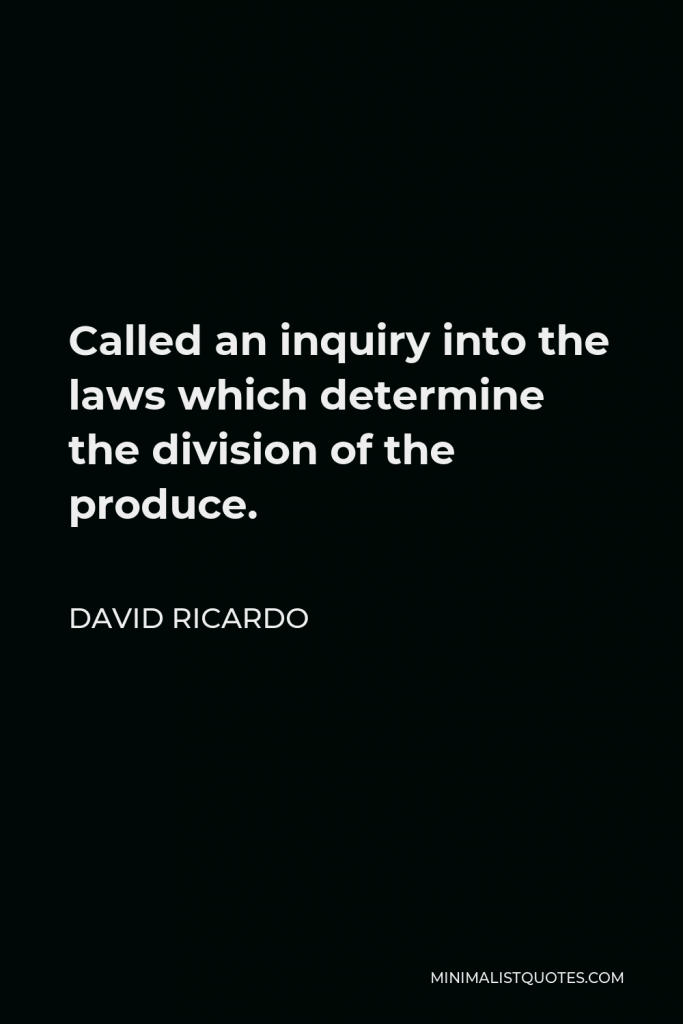

Called an inquiry into the laws which determine the division of the produce.
DAVID RICARDO -





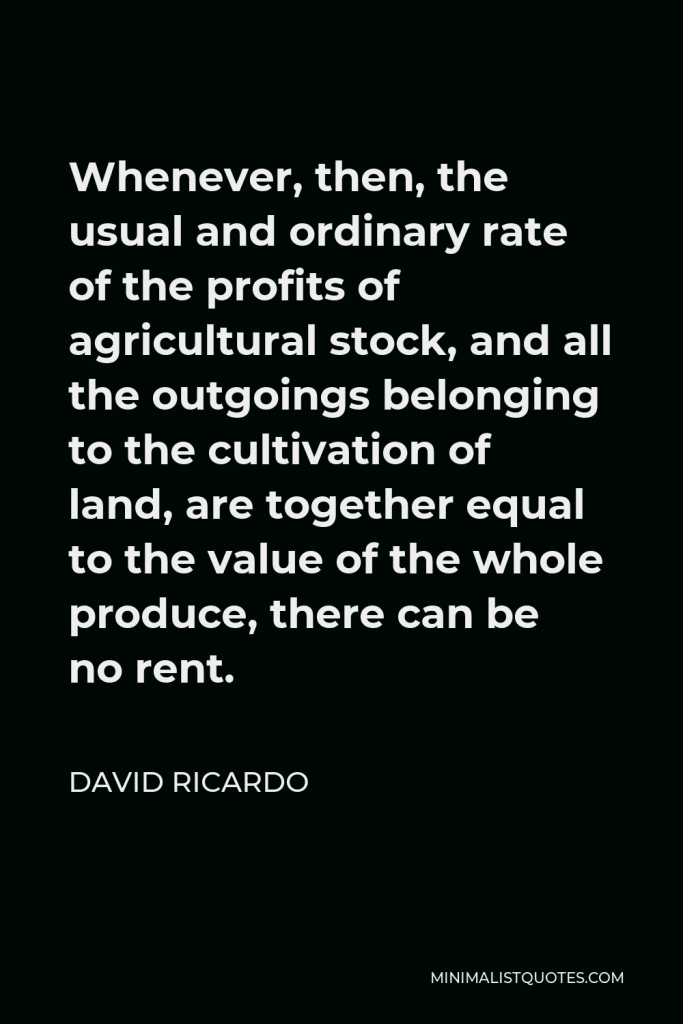

Whenever, then, the usual and ordinary rate of the profits of agricultural stock, and all the outgoings belonging to the cultivation of land, are together equal to the value of the whole produce, there can be no rent.
DAVID RICARDO -





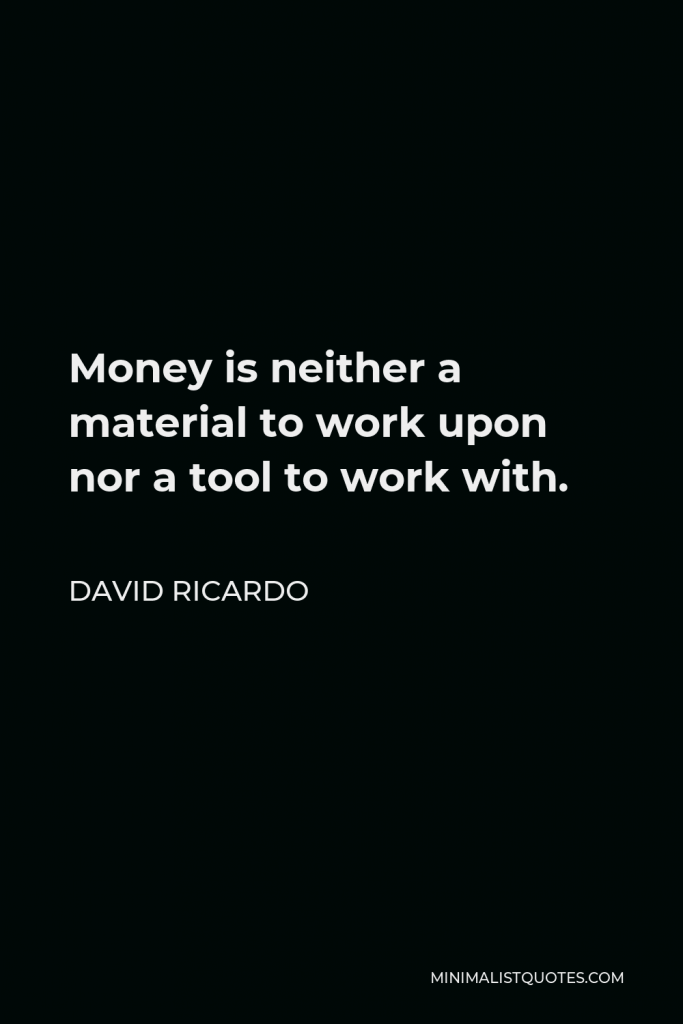

Money is neither a material to work upon nor a tool to work with.
DAVID RICARDO -





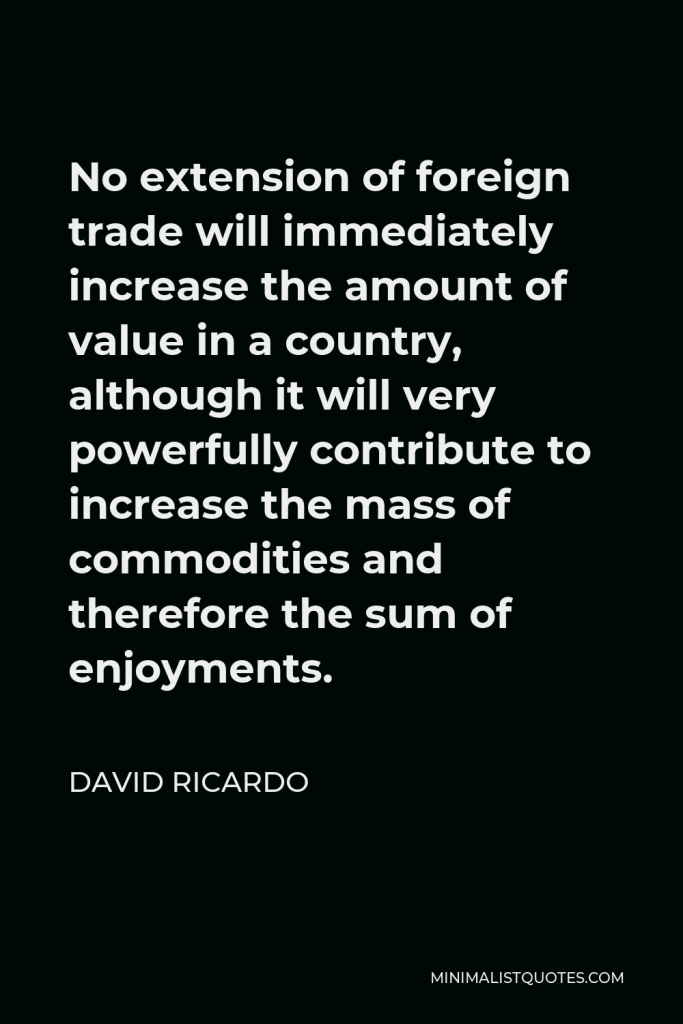

No extension of foreign trade will immediately increase the amount of value in a country, although it will very powerfully contribute to increase the mass of commodities and therefore the sum of enjoyments.
DAVID RICARDO -





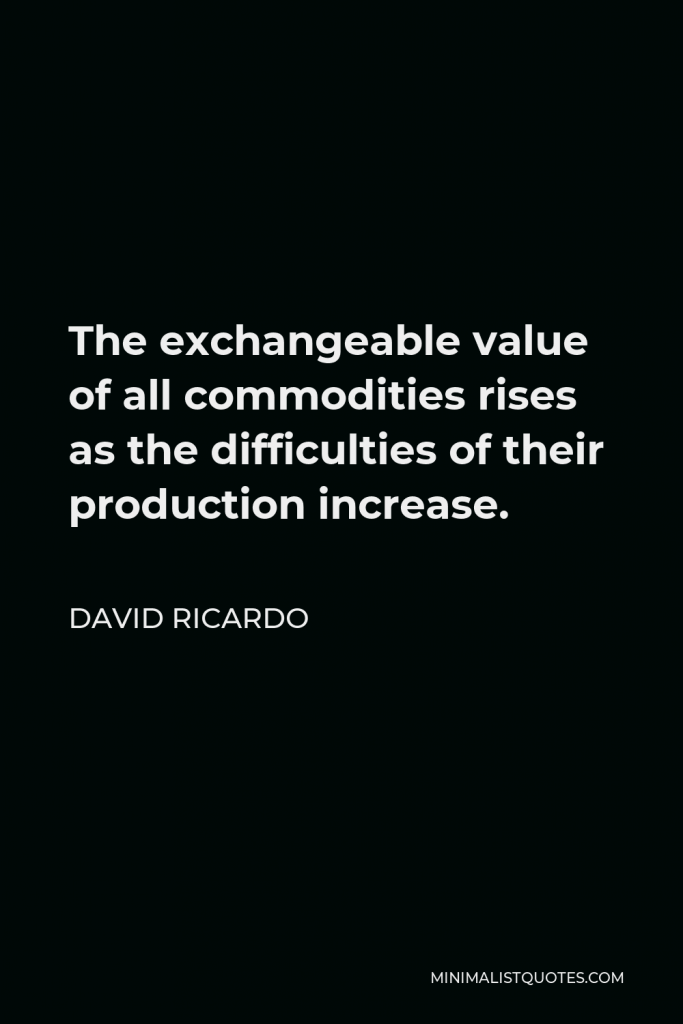

The exchangeable value of all commodities rises as the difficulties of their production increase.
DAVID RICARDO -







The interest of the landlord is always opposed to the interests of every other class in the community.
DAVID RICARDO -





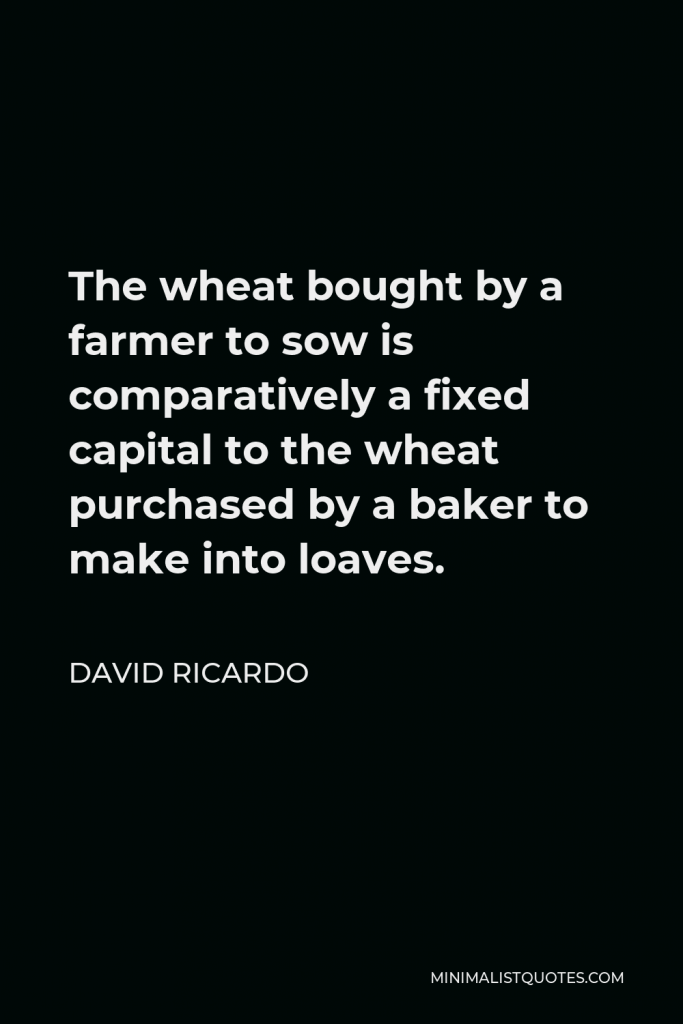

The wheat bought by a farmer to sow is comparatively a fixed capital to the wheat purchased by a baker to make into loaves.
DAVID RICARDO -





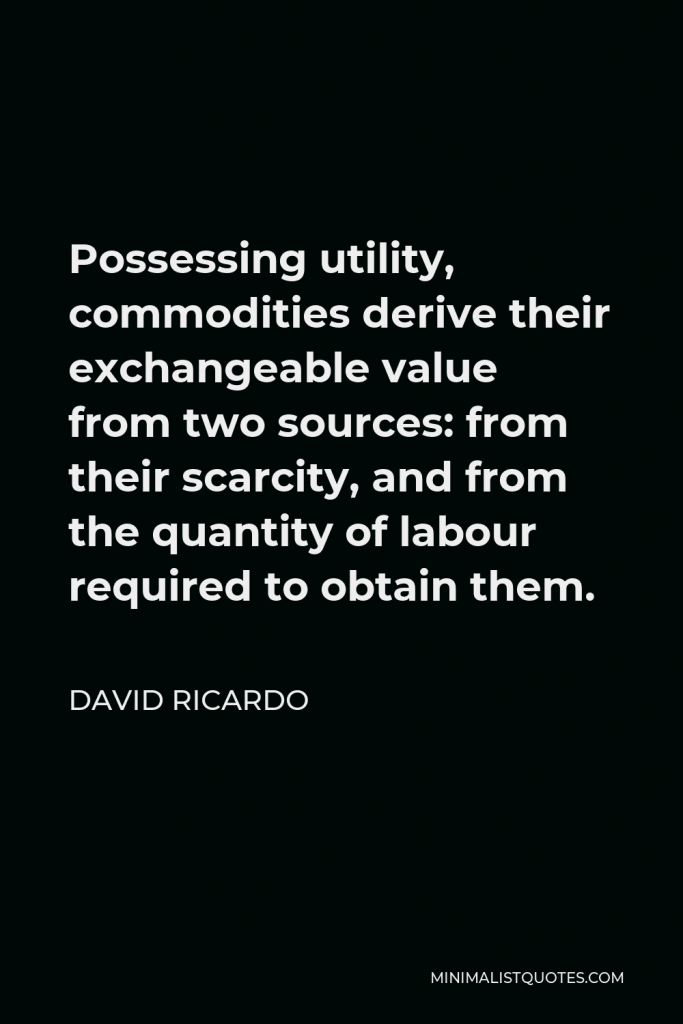

Possessing utility, commodities derive their exchangeable value from two sources: from their scarcity, and from the quantity of labour required to obtain them.
DAVID RICARDO
